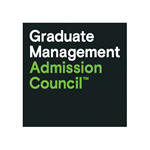Immigration is Critical for the Productivity and Growth of Global Economies, According to New GMAC Report
WASHINGTON, Oct. 15, 2019 (GLOBE NEWSWIRE) -- Today the Graduate Management Admission Council (GMAC) unveiled Early Warning Signals: Winners and Losers in the Global Race for Talent. This comprehensive report examines the role immigration plays in fueling the productivity and growth of global economies, the need to support international mobility of talent across borders, and the critical role business schools play as gatekeepers to skilled immigration and talent development. The report analyzes data in the United States, Canada, the United Kingdom, India and China, and includes the latest business school application data also released by GMAC today via the Application Trends Survey Report 2019.
Business schools are uniquely positioned to explain how mobility of talent connects to economic growth and vitality through our faculty research and expertise. However, as the developers of talent, we also have almost real-time data showing new trends in where talent is choosing to locate, said Bill Boulding, Chair of the GMAC Board and Dean of Duke Universitys Fuqua School of Business. We feel it is critical we share this information now with policy makers around the world as talent will be the most important factor in determining who wins and loses economically in the future. The issues we are raising are important not just in providing the opportunity to cross borders for education but also to foster robust and vibrant national economic activity.
Calling attention to the particular challenges the U.S. faces, 63 CEOs and deans from a broad cross-section of business schools across the country, both public and private, have signed an open letter calling for a substantial change in the U.S. approach to high-skilled immigration. The letter expresses urgent concern that the U.S. does not have the high-skilled talent it needs or the capacity to train enough people with these skills to remain competitive in a global economy.
To prevent this trend from continuing, the signatories are proposing pro-growth policy reforms including:
- Removing per-country visa caps, modernizing the visa processing system, and reforming the H-1B visa program to make it possible for needed talent to have a reasonable chance of gaining entry to the United States.
- Creating a heartland visa to encourage immigration into the regions of the United States that could most use the vitality of these talented individuals.
Quality business schools are emerging around the world and the competition for talent is fierce, the sign of a vibrant marketplace, said Sangeet Chowfla, President and CEO of GMAC. Business schools dont hold all the cards, however. Policy makers also have a responsibility to seed an environment conducive to student mobility. By doing so, they unlock innovation while helping to maintain diversity in the classroom, a critical aspect of graduate management education.
Key Findings:
Early Warning Signals: Winners and Losers in the Global Race for Talent provides a look into the current flow of talent into specific countries, citing data from GMACs 2019 Application Trends Report, an annual snapshot of admissions trends for graduate business programs. Regions in which students desire to study are likely to be the winners in economic development because they are attracting talentwhich has implications for homegrown talent as well by creating hubs of innovation and economic growth.
View of the United States
In 2019, the United States experienced a 13.7 percent decline in international business school applicationsa steeper decline than any other country in the world, and a drop that came amidst largely rising or stable applications everywhere else in the world. Conversely, both Canadian and European programs saw application increases, which were driven primarily by rising international demand. For the US, these numbers are a worrisome indicator for the future mobility of talentespecially for business leaders who now cite the hiring and retention of talent as their number one business concern.
View of Canada
As a positive signal for the countrys future mobility trends, Canada saw an 8.6 percent uptick in international business school applications in 2019a positive signal for the countrys future and mobility trends ahead. This follows on the heels of a 16.4 percent increase in the prior year. Canada also gained 286,000 permanent residents in 2017 and aims to have a total of 1 million new residents by 2021with a focus on high-skilled labor. This positions the nation to yield economic benefits in the years and decades to come.
View of the UK
Three in five UK firms reported experiencing a more difficult time finding talent over the previous year, and 50 percent expected the UKs skills shortage to worsen further in the future. However, 61 percent of UK business programs reported an increase in international applications in 2019 over the prior year, and the share of Graduate Management Admission Test (GMAT) score reports sent to UK programs has increased slightly since 2016, according to a report released by GMAC in March of 2019.
View of India
A view of business school application data shows that the movement of talent from India to other parts of the world continues, with increasing interest in domestic schools. The percentage of Indians sending their scores from the GMAT exam to United States business schools fell from 57 percent in testing year 2014 to 45 percent in testing year 2018, according to the most recent GMAC data. During that same period, the percentage of Indian GMAT test takers sending their test scores to Indian schools rose from 15 percent to 19 percent.
View of China
According to GMACs Application Trends Survey Report 2019, Chinese business schools saw a 6.8 percent increase in domestic applications this year, and domestic volumes were up year-on-year at 73 percent of programs. While 86 percent of applicants to these programs currently come from within the region, the rising profile of Chinas business schools could begin to attract a more global pool of candidates. China is now home to six of the Financial Times' Global Top 50 MBA programs, including the fifth-ranked overall school, China-Europe International Business School (CEIBS). In 2009, just two of the top 100 were in China.
To download the GMAC white paper, Early Warning Signals: Winners and Losers in the Global Race for Talent, visit gmac.com/talentmobility. For the Application Trends Survey Report 2019, visit gmac.com/apptrends2019.
About GMAC
The Graduate Management Admission Council (GMAC) is an association of leading graduate business schools worldwide. Founded in 1953, we are committed to creating solutions for business schools and candidates to better discover, evaluate and connect with each other. We work on behalf of the schools and the graduate management education community, as well as guide candidates on their journey to higher education, to ensure that no talent goes undiscovered.
GMAC provides world-class research, professional development opportunities and assessments for the industry, designed to advance the art and science of admissions. Owned and administered by GMAC, the Graduate Management Admission Test (GMAT) exam is the most widely used graduate business school assessment, recognized by more than 7,000 programs worldwide.
Our flagship portal for graduate management education resources and information, www.mba.com, receives 6 million visits a year and features the School Search matching tool and GMASS search service, matching candidates and business schools.
GMAC is a global organization with offices in Hong Kong and Shanghai, China; Gurugram, India; Singapore; London, United Kingdom; and the United States. To learn more about our work, please visit www.gmac.com.
Media contact: Lindsey Neary, Edelman GMAC@Edelman.com or (202) 243-8574 Geoffrey Basye, Director of Media Relations, GMAC gbasye@gmac.com or (202) 271-1529




